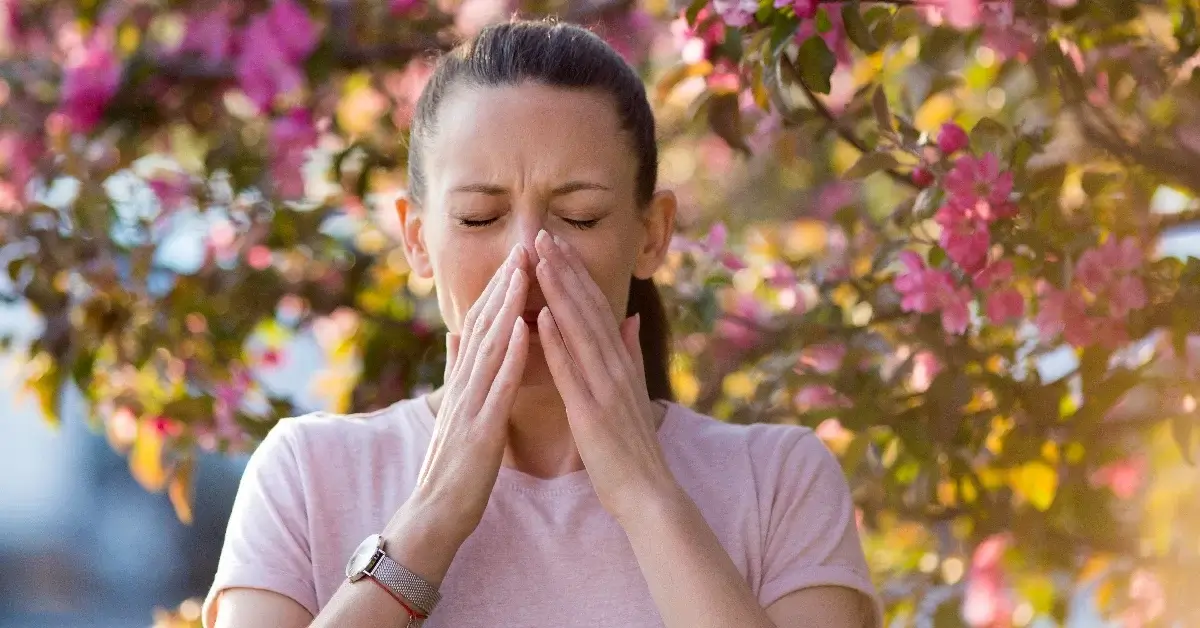Overview of Seasonal Allergies
Seasonal allergies, also known as hay fever or allergic rhinitis, are allergic reactions that occur at specific times of the year. These allergies are triggered by allergens such as pollen, mold spores, and dust mites. Understanding the symptoms, causes, and effective treatments is crucial for managing seasonal allergies.
What are Seasonal Allergies?
Seasonal allergies refer to the body’s immune system reacting to airborne substances during specific times of the year. These allergens can include pollen from trees, grasses, and weeds, as well as mold spores and dust mites.
Signs of Seasonal Allergies
Recognizing the signs of seasonal allergies is essential for timely intervention. The following bullet points outline common indicators:
- Persistent Sneezing
- Runny or Stuffy Nose
- Itchy or Watery Eyes
- Fatigue
- Coughing
- Irritated Throat
- Headaches
- Difficulty Sleeping
Symptoms of Seasonal Allergies
Understanding the detailed symptoms helps individuals differentiate between common colds and hay fever. Key symptoms include:
- Nasal Congestion
- Excessive Mucus Production
- Sneezing Fits
- Red or Watery Eyes
- Itchy Throat or Ears
- Loss of Smell or Taste
- Wheezing or Shortness of Breath
Causes of Seasonal Allergies
The causes of seasonal allergies vary depending on the time of year and prevalent allergens. Let’s explore the triggers associated with each season.
Spring Allergies
During spring, trees release abundant pollen into the air, causing allergic reactions. Common culprits include oak, birch, and cedar trees.
Summer Allergies
Grasses are the primary contributors to summer allergies. Pollen from grasses like Bermuda, Timothy, and Kentucky Bluegrass can trigger allergic responses.
Fall Allergies
Ragweed is a prevalent allergen in the fall, releasing large amounts of pollen. Mold spores also tend to increase during this season.
Winter Allergies
While less common, indoor allergens like dust mites and pet dander can still provoke allergic reactions during the winter months when people spend more time indoors.
Diagnosing Seasonal Allergies
Accurate diagnosis is crucial for effective management. Medical professionals may employ various methods, including:
- Skin Prick Tests
- Blood Tests
- Elimination Diets
- Medical History Assessment
Treating Seasonal Allergies
Effectively managing hay fever involves a combination of avoidance strategies, medications, and alternative treatments.
Avoidance
Minimizing exposure to allergens is a key component of allergy management. Avoidance tips include:
- Monitor Pollen Counts
- Keep Windows Closed During High Pollen Seasons
- Use Air Purifiers
- Regularly Clean Living Spaces
Medication
Pharmacological interventions can provide relief from allergy symptoms. Common medications include:
- Antihistamines
- Nasal Corticosteroids
- Decongestants
- Allergy Shots (Immunotherapy)
Alternative Treatments
Some individuals prefer alternative approaches to complement traditional treatments. These may include:
- Acupuncture
- Herbal Supplements
- Probiotics
- Butterbur Extract
The Takeaway
Understanding hay fever empowers individuals to proactively manage their symptoms. By identifying triggers, seeking timely diagnosis, and adopting effective treatment strategies, one can significantly improve their quality of life during allergy seasons.
Frequently Asked Questions (FAQs)
1. Can seasonal allergies be completely cured?
No, seasonal allergies cannot be completely cured, but effective management strategies can significantly reduce symptoms.
2. Are over-the-counter medications safe for long-term use?
Over-the-counter medications are generally safe for short-term use. However, prolonged use should be discussed with a healthcare professional.
3. How can I differentiate between cold and seasonal allergies?
While colds and allergies share some symptoms, such as nasal congestion, allergies typically involve itching and watery eyes, which are less common in colds.
4. Are alternative treatments as effective as conventional medication?
The effectiveness of alternative treatments varies from person to person. It’s essential to consult with a healthcare professional before relying solely on alternative approaches.
5. Can children develop seasonal allergies?
Yes, children can develop seasonal allergies. It’s crucial to monitor their symptoms and consult with a pediatrician for appropriate management.
Reference:





